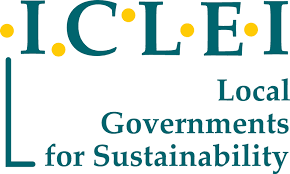29, January 2021, Virtual – The members of the Asia Climate Change Consortium (ACCC) met with members of the Cabinet Office of the United Kingdom to discuss on meaningful engagement for the 26th Conference of the Parties on November 1-12, 2021 in Glasgow, Scotland, UK.
In the meeting were James Munpa of ACT Alliance, Dr. Ohnmar Khaing of Climate Change Working Group Myanmar, Dr. Golam Rabbani of Climate Bridge Fund Secretariat (Bangladesh), Jose Bernardo Gochoco III of Local Governments for Sustainability (ICLEI), Nguyen Ha of Climate Change Working Group Vietnam, John Leo Algo of Living Laodato Si Philippines and Aksyon Klima Pilipinas and Voltaire Alferez of Earth Day Network Philippines. From the Cabinet Office were Emma Judkins and Nikita Mistry, Head of Civil Society Engagement for COP26.
According to Ms. Judkins, the COP26 Presidency aims to make it a very inclusive COP, something that is very much welcomed by the ACCC members. COP25 had a crackdown on civil society organizations leading to CSOs being locked out of the process. The COP26 Presidency has created the necessary process for CSOs to be involved and the meeting is the start of this engagement.
ACCC members shared their experiences as well as suggestions on how to make COP26 truly inclusive from spaces for CSOs to make their voices heard to lobbying opportunities, from visa processing to COVID-19 related concerns. The parties agreed to continue this dialogue and integrate this to the greater dialogue with CSOs around the world to make COP26 successful in delivering the much needed action on mitigation, adaptation, loss and damage, finance and technology transfer.
On the other hand, COP26 aims to use the power of a fair and inclusive Presidency to bring governments, business and civil society together to drive action across key sectors of the economy to reduce emissions, adapt to the effects of climate change and build resilience.
Faster transitions will allow all countries to share sooner the benefits of clean, affordable and secure energy, cleaner air, a more resilient environment, a greener economic recovery and a safer climate. To achieve this, we will focus on five campaigns for our COP26 Presidency:
Adaptation and Resilience
As the IPCC Special Report on global warming of 1.5 degrees highlighted, climate change is already impacting all of us, and each year climate-related and geophysical disasters are estimated to cost the global economy $520 billion.
We must help communities adapt to the impacts of climate change by delivering a step-change in the support and expertise devoted to improving climate adaptation and building resilience, particularly for those most vulnerable to the impacts of climate change.
As climate change takes effect, the international community – including development, humanitarian, climate and environment, private, public and community actors must unite to do more to develop early warning systems and take anticipatory action to prevent climate-related disasters.
The UN Climate Action Summit (UNCAS) in September 2019 marked a critical milestone in the global fight to tackle climate change. We want to build on the momentum from this, and use our COP 26 Presidency to encourage greater political ambition, tools, finance, coordination and commitments to support practical adaptation and resilience action. Action will need to be well informed, coordinated across all sectors, and sustained. This will help to keep countries, communities and people safe from the impacts of climate change.
International commitments around adaptation and resilience should deliver action which spans beyond COP 26 and provides long-term security to those that suffer the greatest consequences from climate change.
Nature
Humanity faces the twin threats of climate change and biodiversity loss which, together, are undermining nature’s capacity to sustain healthy life, nutritious diets and national economies. The two are inextricably linked and need to be tackled together urgently, with equal ambition.
Agriculture, deforestation, and land-use change account for almost a quarter of global emissions and are amongst the biggest drivers of biodiversity loss. But natural carbon sinks like the ocean, peatlands and forests can go some way in reducing global emissions, while nature-based solutions, such as protecting and restoring forests, wetland and coastal ecosystems, can also help humanity adapt and build resilience in the face of climate change, lead healthy and productive lives, and stimulate economic development.
A transition to use land and other natural resources more sustainably is vital and urgent.
We will use our COP26 Presidency to build on the foundations laid at the 2019 UN Climate Action Summit, working with governments, businesses and civic organisations to raise ambition on tackling the drivers of climate change and biodiversity loss, mobilise financing to protect and restore critical ecosystems, and kick-start a just rural transition towards sustainable land use to benefit people, climate and nature.
We will bring together the major producer and consumer countries of forest-risk commodities to agree collaborative actions to protect forests, while promoting development and trade.
We will build momentum of efforts to shape policies, innovation and investment for transitions to sustainable agriculture, improving food, water and economic security.
We will also seek to increase the amount of public and finance being directed towards nature, working with governments, international financial institutions, business and the investor community.
Countries and organisations can signal their commitment to strong action to countering climate change and biodiversity loss by signing the Leaders Pledge for Nature.
Energy Transition
To meet the Paris Agreement’s goals, we need the global transition to clean power to be at least four times faster than it is at present.
The power sector accounts for a quarter of global greenhouse gas emissions. As demand for energy grows, the power sector must grow and decarbonise in parallel. In particular, to stay within 1.5°C of warming, coal – the dirtiest source of power – must be rapidly phased out – by 2030 for the OECD and EU27, and by 2040 for other major emitters and by 2050 for the rest of the world. Governments, businesses and banks can support this aim by joining the Powering Past Coal Alliance.
Dramatic cost reductions in solar and wind energy mean that renewables are now cheaper than new coal in most parts of the world, and bring benefits via improved air quality, energy access and security, and creating jobs in new industries. Renewables made up over 70% of new generating capacity added globally in 2019. However, although countries are increasingly cancelling plans for new coal plants, a significant number are still planned – risking high emissions, polluted air, and stranded assets.
Through the COP26 Energy Transition Council, we will bring together energy ministers, leaders of multilateral development banks, and heads of expert agencies to accelerate the transition to clean power. Together we will work to ensure that for every country considering new power generation, clean power is the most attractive option. And we will strengthen our support – through development assistance, climate finance, and the sharing of expertise – to help the most coal-dependent communities to achieve a just transition.
Finally, we are issuing a COP26 Product Efficiency Call to Action to further accelerate the pace of the clean energy transition. Air conditioners, refrigerators, industrial motors and lighting together account for over 40% of current global electricity consumption. Working with partners in the Super-efficient Equipment and Appliance Deployment initiative (SEAD), we are promoting higher product efficiency standards with the aim of doubling the efficiency of these key products sold globally by 2030.
Clean Road Transport
Global emissions from road transport are rising faster than in any other sector. Road transport accounts for over 10% of global emissions, as well as causing high levels of local air pollution.
The growth of the global market in zero emission vehicles (ZEVs) is outpacing expectations, and some estimates project that they will make up over 50% of all new car sales by 2040. However, to meet the goals of the Paris Agreement, 100% of new car sales need to be zero emission by then. In other words, we need to double the pace of the global transition to zero emission vehicles.
Governments can support this goal by requiring all new cars sold within their markets to be zero emission by 2040 or earlier. Vehicle manufacturers can commit to making all the cars they sell zero emission by this time. Businesses that own large vehicle fleets can contribute by committing to buy only zero emission vehicles, and by joining the EV100 initiative.
By working together to grow the market for zero emission vehicles, we can scale up their production and bring down their costs more quickly. We will use our Presidency to bring together governments of the world’s largest car markets, as well as leading manufacturers and civil society experts, to agree coordinated action to accelerate the global transition.
Finance
The long-term transition to a net-zero and resilient future requires trillions of dollars of investment and an unprecedented shift in the global financial system.
This transition presents immense economic and development opportunities, yet today there is a huge gap between the needs and actual finance flows. This is felt most in developing countries, particularly those vulnerable to the impacts of climate change. Channelling the finance needed to enable and accelerate this transition will require collective global action across the public and private sectors.
Our COP26 priorities for public finance reflect the key challenges raised during extensive consultation with parties, and highlights the action required by all stakeholders to address concerns about the quantity, quality, responsiveness and impact of international climate finance.
Donors must provide clarity about how they will collectively meet and surpass the goal of mobilising $100bn a year for developing countries. The Prime Minister has announced plans to double UK international climate finance to £11.6bn over 2021-2025. Multilateral and Public Development Banks, Development Finance Institutions, multilateral climate funds, the IMF, central banks and financial regulatory bodies, must all play a critical role. We look forward to working with all stakeholders to make collective progress.
Meeting and exceeding the $100bn target is essential but will not be enough to deliver the trillions needed. Whilst private finance is not a substitute for increased public finance, it will be vital in increasing the scale and reach of climate action and enabling the transition.
So we are also focused on transforming investment environments in developing countries and emerging markets. Incentives are changing; in part driven by increased net-zero targets and the pathways to achieving them – the Net Zero Asset Owners Alliance represents $5 trillion in assets, part of the Race to Zero. Every financial decision must take climate change into account. This is the goal of Mark Carney’s work, which involves: improving the quantity, quality and comparability of climate-related disclosures; ensuring the financial sector can measure and manage climate-related risks; helping investors identify the opportunities in the transition; and facilitating the mobilization of private finance to developing countries.#






 c/o Rice Watch Action Network
c/o Rice Watch Action Network